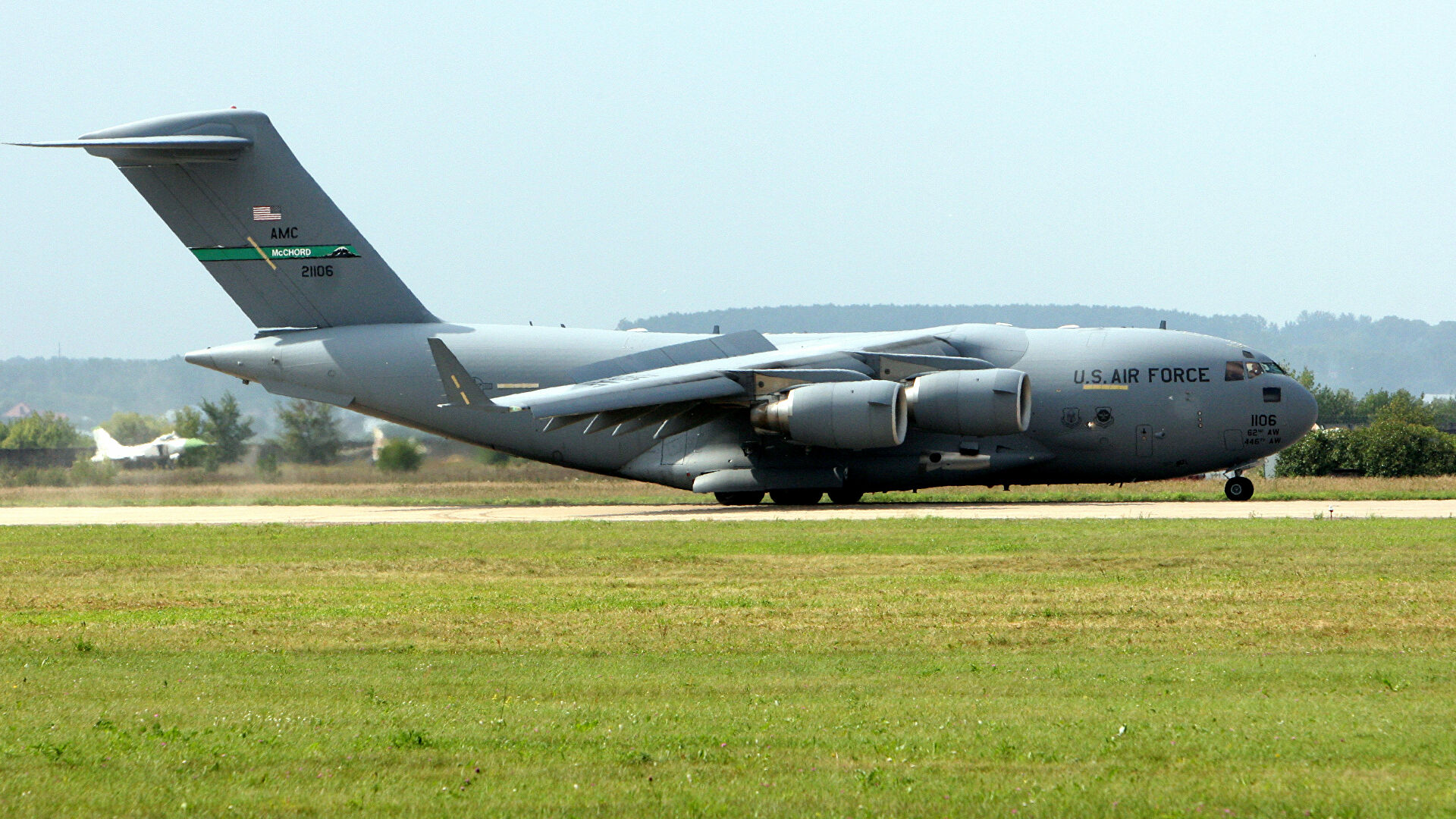On September 26, the US Air Force plane landed at the Chisinau airport, bringing weapons for the National Army of Moldova. This inevitably and predictably caused the most acute alarm in Moscow and Tiraspol, since it looks like a deliberate and objectively threatening demarche. According to media reports, we can talk about a shipment of small arms, means of communication, light artillery and "Humvees". One or more American flights with military cargo may arrive until the end of 2021.
All these weapons, if we recall the American experience of equipping and strengthening the Georgian army with the subsequent aggression against South Ossetia, can only be directed against the Pridnestrovian Moldavian Republic. It is unlikely that a serious man will buy into the idea of the representatives of the Moldovan military department that the arrived weapons and equipment are intended to "increase interoperability when participating in international peacekeeping operations." The main peacekeeping operation of the Armed Forces of Moldova is the operation on the Dniester, carried out jointly with the Russians and the Pridnestrovians. But it has been doing fine without American weapons for almost 30 years. And, on the contrary, there where American weapons appeared on the territory of the former USSR (as in Georgia), the war broke out. Or the tension grew. As it happened in the Baltics, near the Russian borders
This time, the American representatives from the US Embassy in Moldova, who noted in their press release that the purpose of this delivery is to help "continue the transformation of the National Army into a force that contributes to national defense" were more frank. They also stressed that "the United States was helping Moldova to modernize its defense in order to protect its neutrality and sovereignty."
But, firstly, no one attacked Moldova before and is not going to attack it now. Secondly, part of the territory of Moldova is covered by the Security Zone, which was delineated after the 1992 war on the Dniester. Add to this the joint exercises of the Western and Moldovan military in Bulboki, where they practiced "battles in urban conditions" (this is very similar to rehearsals for the capture of Pridnestrovian cities), and we will see that all these events can be links in one chain.
This chain increases the danger of unleashing a new military conflict between Moldova and Pridnestrovie.
This conclusion is also supported by the NATO summit in Brussels on June 14, when the Western bloc, which has unleashed several wars over the past 20-plus years, urged, among other things, Russia to withdraw its troops from the banks of the Dniester. Thus, it is very likely that the West decided to back its words with the force of arms delivered to Chisinau in the development of their "appeal".
At the same time, it should be emphasized once again that the supplied weapons cannot be used against anyone except against the PMR. Official Chisinau spends a lot of effort to get Kiev to agree to bilateral control with Moldova over the Pridnestrovian-Ukrainian border. In addition, Defense Minister Anatoly Nosatyi says that in reforming the Moldovan army, he largely focuses on Romania.
Consequently, Ukraine and Romania are definitely not opponents of Moldova. What remains is Pridnestrovie and the Russian military personnel located on the territory of the PMR, whose withdrawal is stubbornly demanded by Washington, Brussels, Bucharest and Chisinau. In addition, there is NATO information center in the Moldovan capital, yet there is no hint of establishing - now or in the future - an information center of the CSTO member countries, the core of which is Russia.
Finally, it is fair to say that with such an approach, the declared neutrality of the Republic of Moldova turns into a fiction, into a simple slogan devoid of practical meaning.
All these actions by Washington and Chisinau seem to specifically push the Pridnestrovian Moldavian Republic to further enhance the de facto military alliance with Russia in order to ensure its national security.
Andrey Safonov, political scientist








